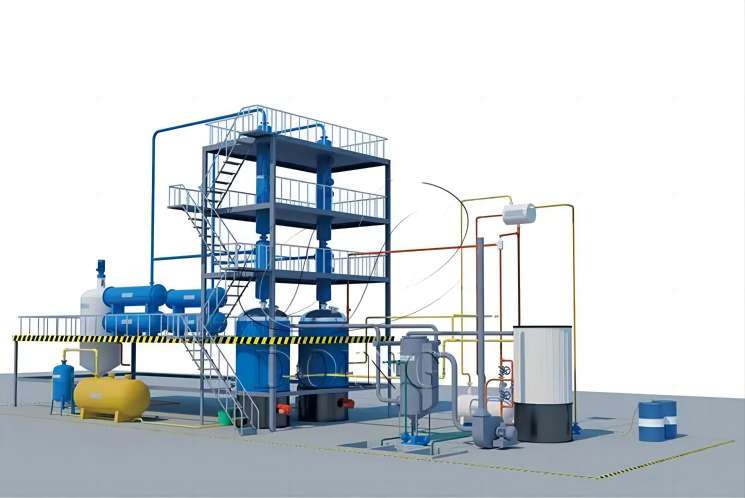The Vital Role of Recycling: Understanding Motor Oil Recycling Rates and Their Impact
Motor oil plays a crucial role in the smooth operation of our vehicles, ensuring efficient lubrication and engine protection. However, once used, this essential oil becomes a potential source of environmental pollution if not disposed of responsibly. Fortunately, motor oil can be recycled, offering numerous benefits for both the environment and the economy. This article delves into the fascinating world of motor oil recycling, exploring recycling rates, processes, challenges, and the exciting future ahead.

Why Should Recycle the Used Motor Oil?
Used motor oil can contain harmful contaminants like metals and chemicals, posing a significant risk to the environment if it enters our waterways or soil. Improper disposal can pollute groundwater, harm wildlife, and disrupt ecosystems. Recycling used motor oil helps minimize these risks, transforming waste into valuable resources.
What is the Rate of Motor Oil Recycling?
Globally, the estimated recycling rate for used motor oil is around 60%. This rate varies considerably across different regions and countries. For instance, Europe boasts an impressive recycling rate of around 90%, while developing nations often struggle to reach even 50%. Factors like government regulations, consumer awareness, and access to recycling facilities all play a significant role in influencing recycling rates.
How Many Types of the Motor Oil?
The type of motor oil also influences recycling rates. Synthetic oil, while offering superior performance, can be harder to recycle than conventional oil. Additionally, geographic location plays a crucial role. Countries with stricter environmental regulations and robust infrastructure tend to have higher recycling rates.
What is the Motor Oil Recycling Process?
The process of recycling used motor oil involves several steps:
- Collection: Used oil is collected from various sources, such as automotive workshops, service stations, and individual consumers.
- Processing: The oil undergoes various treatments to remove contaminants like water, sediments, and metals.
- Re-refining: Through a complex process, the oil is converted back into base oil, which can be used to produce new lubricants.
- Fuel blending: Alternatively, the oil can be processed and blended into fuel for industrial applications.
What Difficulties Do We Need to Face?
Despite its benefits, motor oil recycling faces several challenges. One major obstacle is the logistical difficulty of collecting and transporting used oil from various locations. Additionally, contamination of used oil with other fluids can complicate the recycling process. Furthermore, the economic viability of recycling can be influenced by fluctuating oil prices.
However, amidst these challenges, there are also exciting opportunities for the future of motor oil recycling. Technological advancements are leading to more efficient and cost-effective recycling methods. Additionally, growing awareness about environmental issues is encouraging more consumers to participate in recycling programs actively.
Benefits of Recycling Used Motor Oil
Recycling used motor oil offers a multitude of benefits, both for the environment and the economy:
- Environmental Benefits: Recycling reduces the environmental impact of used oil by minimizing pollution and conserving natural resources. This helps protect our air, water, and soil, contributing to a healthier planet.
- Economic Benefits: Recycling creates jobs in the recycling industry and reduces our dependence on imported oil. Furthermore, it can potentially lead to lower costs for consumers by diversifying the supply chain for lubricants.

Future Trends and Developments
The future of motor oil recycling is promising. Ongoing research and development efforts are focused on:
- Improving Recycling Efficiency: New technologies aim to increase the yield of recycled oil and reduce processing costs.
- Developing Advanced Recycling Techniques: Exploring innovative methods for recycling synthetic oil and other challenging types of used oil.
- Promoting Sustainability: Encouraging partnerships and collaboration among governments, businesses, and individuals to create a more sustainable future for the oil industry.
Conclusion
As we move towards a more sustainable future, it’s crucial to recognize the vital role of motor oil recycling. By understanding the current recycling rates, processes, and challenges, we can work together to create a future where used oil is transformed into a valuable resource, protecting our environment and maximizing economic benefits. Individuals can contribute by practicing responsible disposal of used oil and supporting initiatives that promote recycling. By taking collective action, we can ensure that the wheels of progress keep turning in an environmentally sustainable manner.







